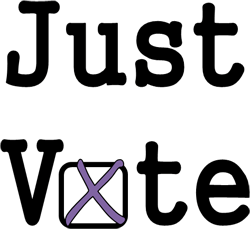General Election 2010 - The Warwick Expert View
With the UK General Election date announced for 6th May 2010, we present a selection of comments and views from Warwick staff and students including a podcast on UK politics, research on the ethnic minority vote, a plea for student participation, and a twitter poll on Plato. Revisit these pages throughout the election campaign to see more expert comments from Warwick staff and students.
 Just Vote - a week of events
Just Vote - a week of events
Just Vote is an independent, student-run campaign at the University of Warwick, set up to encourage students to get involved in politics - especially in the upcoming general election on Thursday 6 May 2010.
As part of the campaign, Just Vote is hosting a series of events from Thursday 29 April to Thursday 6 May at various locations around campus. Events include a public screening of The Final Leader's Debate on Thursday 29 April, a Warwick take on Question Time with political candidates from the three constituencies around the University and a "Warwick Manifesto" where students are invited to submit their own manifesto ideas detailing what they’d change about Britain which will be sent to whoever wins the coming election.
'Climategate' - climate change and the general election
The issue of climate change and a low-carbon economy feature in the manifestos of the three main UK political parties, but Professor Wyn Grant from the Department of Politics and International Studies told ClimateWire: "It is one thing to put it into the manifestos [platforms], but another thing what you actually do with it. A small minority of the British public are seriously concerned about climate change. Most of the rest have simply become confused about it because of the selective leaks of the e-mails stolen from the University of East Anglia."
"But the environment never has -- except in very local issues like waste disposal -- featured in any election here, and that is not about to change".
Why 'X' does not always mark the spot
Ballot papers that aren't marked with an "X" should not necessarily be rejected says Professor Wyn Grant from the Department of Politics and International Studies. He recently told the BBC that returning officers should use their discretion when voters use a tick instead of a cross; "What is clearly prohibited is putting anything on the ballot paper that would identify the voter, or which contains some sort of message to the candidates." Read the full story on the BBC website
A correct prediction
Professor Wyn Grant correctly predicted that the general election would take place on 6th May to coincide with the local government elections. In a podcast in January, Wyn said: "I think the general election is most likely to take place on May 6th, when there are due to be local government elections...if you hold the election on that date it reduces the cost of the election and that's an important consideration given the amount of government debt, also the hope would be that it would stimulate higher turnout in the local government elections if they are held on the same day as the general election"
| In this podcast, Wyn Grant also looks back at the history of elections since 1945 and discusses maximising turnout; Football, the World Cup and politics; The challenges political parties are facing; Cameron's suggestion of a War Cabinet; and the influence of the BNP, UKIP and Respect political parties |
 Plato's vote
Plato's vote
Philosopher, Dr Angie Hobbs takes a philosophical look at the general election and asks "Who would Plato vote for if he were around today?".
Angie says: "That’s easy: he wouldn’t vote because he didn’t believe in democracy. Certainly not the participatory democracy (if you were an Athenian male citizen) of the Athens of his day (which had, of course, put his beloved Socrates to death), and his arguments against democracy suggest he would have been no more sympathetic to our representative version."
Plato's Republic suggests that states should be ruled by philosophers, and in keeping with this, Angie invites you to submit your nominations for an alternative Cabinet of Philosophers rather than Politicians via her blog or on Twitter using the hashtag #voteplato.
Find out more on Angie's blog or follow @drangiehobbs on Twitter
The ethnic minority vote
Professor Muhammad Anwar, from The University of Warwick’s Centre for Research in Ethnic Relations, shows that ethnic minority votes will be more important than ever in the forthcoming general election but ethnic minority voters are still massively undervalued and under-represented.
In his recent book, Ethnic Minorities and Politics Professor Anwar notes that ethnic minorities voter registration is approaching levels of white voters and turnout is now higher than the national average. In the last general election the national average turnout was 61.4% yet for Bangladeshi voters it was 76%, Pakistanis 70% and Indians 67%. Black Africans matched the national average at 61% and only Black Caribbean voters were lower at 54%.
Professor Anwar stresses concern that while ethnic minorities are 10% of the UK population, the total number of ethnic minority origin MPs does not reflect that. To do so there should be over 60 MPs of ethnic minority origin when there are only 15. The ethnic minority representation in the House of Lords is over 30 although to reflect the ethnic minority population it should be over 70. Professor Anwar believes that this balance is unlikely to shift – particularly for Muslim minorities. He does note that at least Labour has selected three Muslim women for safe seats at the next general election but that the other parties have not selected Muslims for safe seats.
- Read a recent BBC news article about the predicted asian voter turnout
- Read more about Professor Anwar's research
 The Student Vote
The Student Vote
President of the Students' Union, Andrew Bradley urges students to use their vote. He said:
"When you see images of people queuing outside polling stations in Iraq, endangering their lives to exercise their democratic right to vote, it does put the turn out in this country into rather sharp relief. I would strongly urge all students, whether eligible to vote in a UK election or not, to take an interest in the election and follow the campaign. If you are eligible to vote, please make sure you’re registered and find out where the nearest polling station is. After all, if you don’t take part, you can’t complain about the outcome!”
Just Vote is an independent student-run campaign at the University of Warwick, founded in January 2010. Set up by a small group of Warwick students, it aims to encourage political participation by persuading all students to turn up and exercise their right to vote on Election Day.



